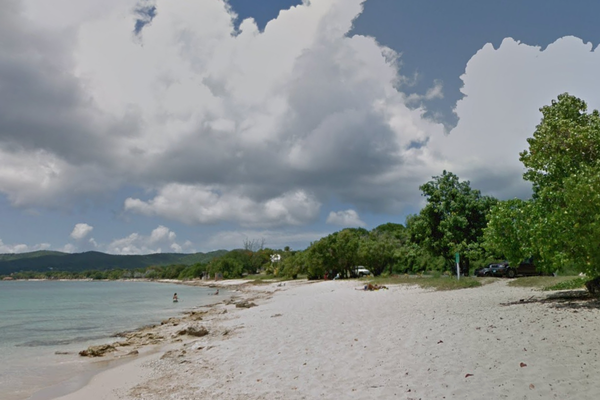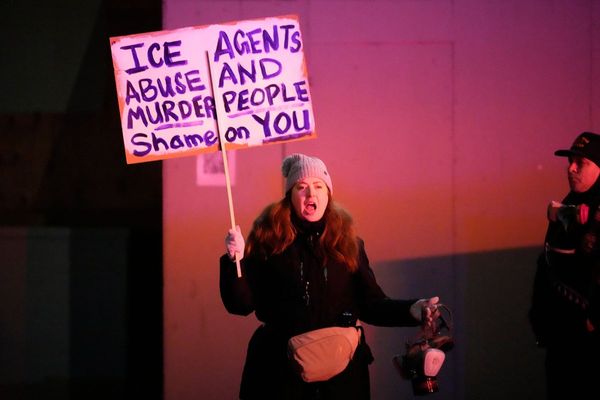
The full horrors of the only Nazi concentration camps to exist on British soil will finally be investigated in an official government inquiry, the Observer can reveal.
Eighty years on from one of the darkest episodes in British history, the government is to carry out a review into the numbers of prisoners murdered by the Nazis on Alderney, the tiny Channel Island and British crown dependency.
It has now been established that the SS ran two of the camps on Alderney during the second world war, and new evidence of the scale of Nazi barbarity on the island has emerged over recent years. The number of victims has been contested, with some claiming thousands were killed with many buried in mass graves on the island.
Dame Margaret Hodge, the Labour MP whose father fled Nazi persecution in Germany, welcomed the review: “It is time for the British government and Alderney authorities to finally face up to the horror of what happened on British soil. There can be no more lies and no more cover-up.”
The expert review will be announced later this summer by the UK’s Holocaust envoy, Lord Pickles, and the government hopes the investigation will finally end the controversy over the scale of the Holocaust on Alderney. Lord Pickles told the Observer: “The difference between the estimates is so large, I thought it sensible for everyone to put the facts on the table, for it all to be transparent and for the deliberations to be in the open. It seemed pointless people shouting across at each other. It would be better to have a proper discussion and to bring together a panel of international experts.”
The announcement comes as the UK prepares to take over the chair of the International Holocaust Remembrance Alliance (IHRA), a network of experts and government officials from 35 countries around the world. Dr Kathrin Meyer, secretary general of the IHRA, said: “This inquiry is a significant step toward telling this important history. Dealing openly and accurately with the Holocaust and the history of the Nazi persecution of other groups in all its dimensions is crucial and we expect the results to go a long way in protecting the facts, no matter how uncomfortable they may be.”

The Channel Islands were the only part of the British Isles to be occupied by the German army after Winston Churchill’s war cabinet decided in the summer of 1940 they could not be defended. The British population of Alderney, 10 miles from the French coast, was evacuated, which allowed Nazi high command to turn the island into a giant prison for slave labour.
Though the majority of prisoners were Russians and Ukrainians, brought from the occupied parts of the Soviet Union to build the giant defences of Hitler’s so-called Atlantic Wall, it is known that many Jews, north Africans and Spanish republicans were also taken to Alderney.
According to testimony from the time, many prisoners were killed through a policy of systematic murder known as “Vernichtung durch Arbeit” – extermination through labour. Others were tortured, shot, given fatal injections and those sick, or unable to work, were sent to extermination camps in Occupied Europe.
It has been established that at least one transit of hundreds of French Jews was housed in one camp on the island having been transported there from the Drancy transit camp in Paris, where Jews were rounded up and sent on to Auschwitz during the German occupation of France.
The numbers who died on Alderney has long been disputed but even the most cautious academics put the figure at between 700 and 1,000 people. Professor Anthony Glees, security and intelligence expert and formerly adviser to the war crimes inquiry in the Home Office, told the Observer that the Pickles investigation is vital. “I would be surprised if the numbers killed by the Nazis either in Alderney or transported from Alderney on to extermination camps in Europe did not run into thousands,” he said.
Only eight Jews are officially recorded as dying on the island, but the new inquiry will examine claims from researchers that as many as 1,000 could be buried in mass graves. Some campaigners believe thousands could have perished on the island.
Jewish researcher Marcus Roberts, who has campaigned for many years for the full scale of the horrors on Alderney to be revealed, said: “There are still many questions about what really went on in Alderney and who knew what. For too long, some have been too willing to look the other way in the hope it all goes away. I hope this review will finally provide answers and some justice for the victims.”
Dr Caroline Sturdy Colls, professor of conflict archaeology at Staffordshire University, has used imaging technology to identify the sites of two mass graves on the island. She is cautious about the numbers of victims but told free-expression magazine Index on Censorship: “It is evident from the wide range of testimonies available and from the surveys we did of the camps in which Jews were housed that they were treated appallingly, and more Jews likely died than we know of.”
She added: “The conditions in which Jews were housed were an extension of those that they were kept in elsewhere in Europe. The camps on Alderney were part of a network of sites that housed Jews and harsh punishments, terrible working and living conditions, and torture characterised their lives on Alderney.”
After the war, an investigation by the Judge Advocate General’s office concluded: “The position here is somewhat similar to Belsen, stronger perhaps because the offences were committed on British soil.” However, none of those responsible for the war crimes committed on Alderney were ever brought to justice.
The inquiry is likely to vindicate the journalist who first sought to reveal these atrocities in the Observer four decades ago. Solomon Steckoll’s groundbreaking research was serialised in 1982 and made the sensational claim that Carl Hoffman, the commandant of Alderney, was not handed over to the Soviet authorities and executed in Kyiv as the UK government claimed. He had, in fact, been in British custody until 1948, when he was allowed to return to Germany. He died peacefully in his bed in West Germany in 1974. At first, the British government dismissed Steckoll’s claims but, in 1983, were forced to admit he was right.
• This article was amended on 22 and 23 July 2023. An incorrect reference to the camps being on “UK soil” was removed from the headline. And the second image shows Allied troops on the quay at Alderney in 1945, not German troops there in about 1940 as an earlier caption said.







